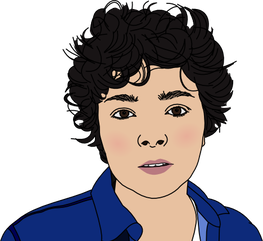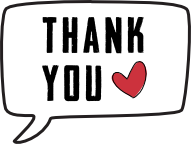What is the anti-Archive?
The anti-Archive is a digital space that collects and organizes the ephemeral evidence of QR's history of programming. We call this project an “anti-Archive” because it documents the undocumentable and provides what queer of colour critic José Esteban Muñoz describes as “a kind of evidence of what has transpired but certainly not the thing itself.”
Our anti-Archive focuses on preserving the mission of QU(e)ERYING RELIGION through memory. As photographic artist Zoe Leonard eloquently states, “testimony or being a witness is about understanding that your story is part of a larger story that is vital to pass on to other people, that you hold a piece of a puzzle that’s part of a picture that other people need to see.” Interviews with program alumni are brought to life as short, animated videos that testify to the lived experience of participating in QR’s long history of (un)common conversations.
We hope that in staging the effort to remember what is always already lost, traces of our collective past will momentarily reappear.
Our anti-Archive focuses on preserving the mission of QU(e)ERYING RELIGION through memory. As photographic artist Zoe Leonard eloquently states, “testimony or being a witness is about understanding that your story is part of a larger story that is vital to pass on to other people, that you hold a piece of a puzzle that’s part of a picture that other people need to see.” Interviews with program alumni are brought to life as short, animated videos that testify to the lived experience of participating in QR’s long history of (un)common conversations.
We hope that in staging the effort to remember what is always already lost, traces of our collective past will momentarily reappear.
Qu(e)erying Religion Founding Members
|
RALPH CARL WUSHKE, QR FOUNDER
QR founder, Rev. Ralph Carl Wushke, narrates the evolution of QR from tentative beginnings to fully-fledged, annual programming. He reflects on the efforts and rewards of his 14 years serving as the Ecumenical Chaplain at UofT, and he attests to the patience, perseverance, and imagination required when building a community hub space from scratch. |
MARILYN ELPHICK, QR CO-COLLABORATOR
Marilyn remembers how the transformative power of student voices inspired her to take up a leadership role with QR. She grieves the personal impact of her unexpected departure from her position as Director of Campus Ministry at St. Michael’s College, and, in effect, from her work as a key collaborator of the QR program. She reflects on her personal mission to offer an affirming Catholic voice on campus for LGBTQ+ students of faith. |
Qu(e)erying Religion Student Alumni (organized alphabetically)
|
AWIT MARCELINO
Awit reflects on the intersections of her Christianity and her Filipina identity. She remembers attending a QR storytelling circle and learning the value of bearing witness to other’s narratives. She speaks of QR’s “radical hospitality” and of finding in QR a space to begin discussing sex and faith. |
CINDY BOURGEOIS
Cindy touches on QR’s different physical spaces and their impact on the participant experience. She remembers provocative conversations with a Catholic Ethicist and an Imam, and she shares how the program cultivated a supportive environment within which members could begin challenging their oppressors. |
|
CJ SANDER
After experiencing a rift with a family member whose religious ideology was at odds with his trans identity, CJ discusses how QR's open dialogue provided an empathetic space both to question and to find support in theology and religious philosophy. |
CRES
Cres remembers finding his voice at his first QR meeting. He speaks about curating a sci-fi art exhibition that centres queer conceptions of the other-worldly, and he reflects on the ways that QR’s sense of community helped him build resistance to isolation. |
|
DAVID SEITZ
David recalls how the “light touch” of QR’s film screening series cultivated a space for deep listening as well as dialogue. He speaks of QR's resilience in the face of funding challenges and of the commitment QR makes in attending to the complicated role that religion plays, particularly in the lives of queer, diasporic students of faith. |
ELIJAH KARLO SABADLAN
Elijah discusses his role in developing QR's logo. He shares how QR's intimate but intersectional community provided a welcoming environment to develop deep, personal relationships with other queer students from divergent faiths, ethnicities, and cultures. |
|
GIO IACONO
Gio recalls the sense memory of his first QR event, gaining an embodied understanding of different religious, spiritual, and ethno-racial experiences, and how the program helped him learn to build comfort in traditionally unwelcoming spaces. |
HOSSEIN MOGHTADERI
As a gay, Iranian man, Hossein discusses how his experiences navigating secrecy, LGBTQ+ rights, and sexual freedom inspired him to push for QR's official recognition as a university campus group. |
|
JOHN PAUL CATUNGAL
JP remembers the central role that food played in evoking the embodied nature of religious practice at QR events, and he speaks of the simultaneously affirming and oppressive nature that any community, QR included, must work collectively to manage. |
MATTHU STRANG
Matthu discusses growing up Fundamentalist Christian, his role in the birth of the Qu(e)erying Religion Program, and how QR helped him learn to sit with discomfort. |
|
NATHAN
Nathan remembers QR’s journey towards a coherent group identity. He speaks to the rural Canadian, religious, queer experience, and he recalls how the unconditional warmth and generosity of QR’s founding members provided a community of fictive kin that he could always lean on. SAVIOR BLUE
Savior Blue shares how QR’s focus on inter-faith and inter-cultural dialogue held space for their multiple and intersecting identities. Blue revisits a performance they gave at a QR event and highlights how the program’s emphasis on creative engagement provided opportunities to express the triumphs and challenges of their faith, gender, and sexuality. SUN REY
Sun Rey remembers her first encounter with QR, the satisfaction of engaging with a space that is participant-driven, and the unique way that QR held space for its members to unpack the nuanced heaviness that emerged among diasporic queers of faith, following Donald Trump’s election to presidential office in 2016. YUJIA (KATHERINE) ZHU
Yujia recalls a group outing to the theatre and how the dialectical conversation that followed allowed her both to uphold and to interrogate her own critical lens. She shares how her time with QR has inspired her to advocate for LGBTQ+ affirmation in sacred spaces. |
SANTIAGO DE LOPE
After relocating from Mexico to Toronto to attend UofT, Santiago remembers the importance of maintaining a relationship with his religious practice in order to feel connected to the familiarity of home. He recalls how his involvement with QR allowed him to begin to reconcile the tenets of Catholicism with his queer desire and to find the courage to own his sacred connection to the divine. SHLOMO GLEIBMAN
Shlomo remembers taking part in a guided meditation attending to the persecution of LGBTQ+ folks in Russia. He recalls the power of silence in such rituals and the value of spaces like QR that encourage the synthesis of religious experience and queer identity despite the traditionally secular thrust of mainstream LGBTQ+ movements. THAI
Thai shares how the Queer and Christian discussion group, an offshoot of the Qu(e)erying Religion Program, provided a safer space to navigate unspoken tensions between his queer desire and his Christian beliefs. Despite his more introverted engagement, Thai remembers the value of having a community with which to gather. ALISHA STRANGES
Alisha served as the QR Student Intern and Program Facilitator from 2016 to 2018. Over the course of 3 summers, she captured and edited interviews with QR leaders and student alumni about their experiences participating in the program. She has since transformed these narratives into a vibrant collection of animated video archives, and she warmly invites you to explore the anti-Archive's many voices for yourself. |
|
The anti-Archive project is made possible through the generous support of:
The Ecumenical Chaplaincy at the University of Toronto, The Multi-Faith Centre at the University of Toronto, The Philip N. Knutson Endowment for Lutheran Campus Ministry, Rosedale Presbyterian Church, and countless individual contributors |


